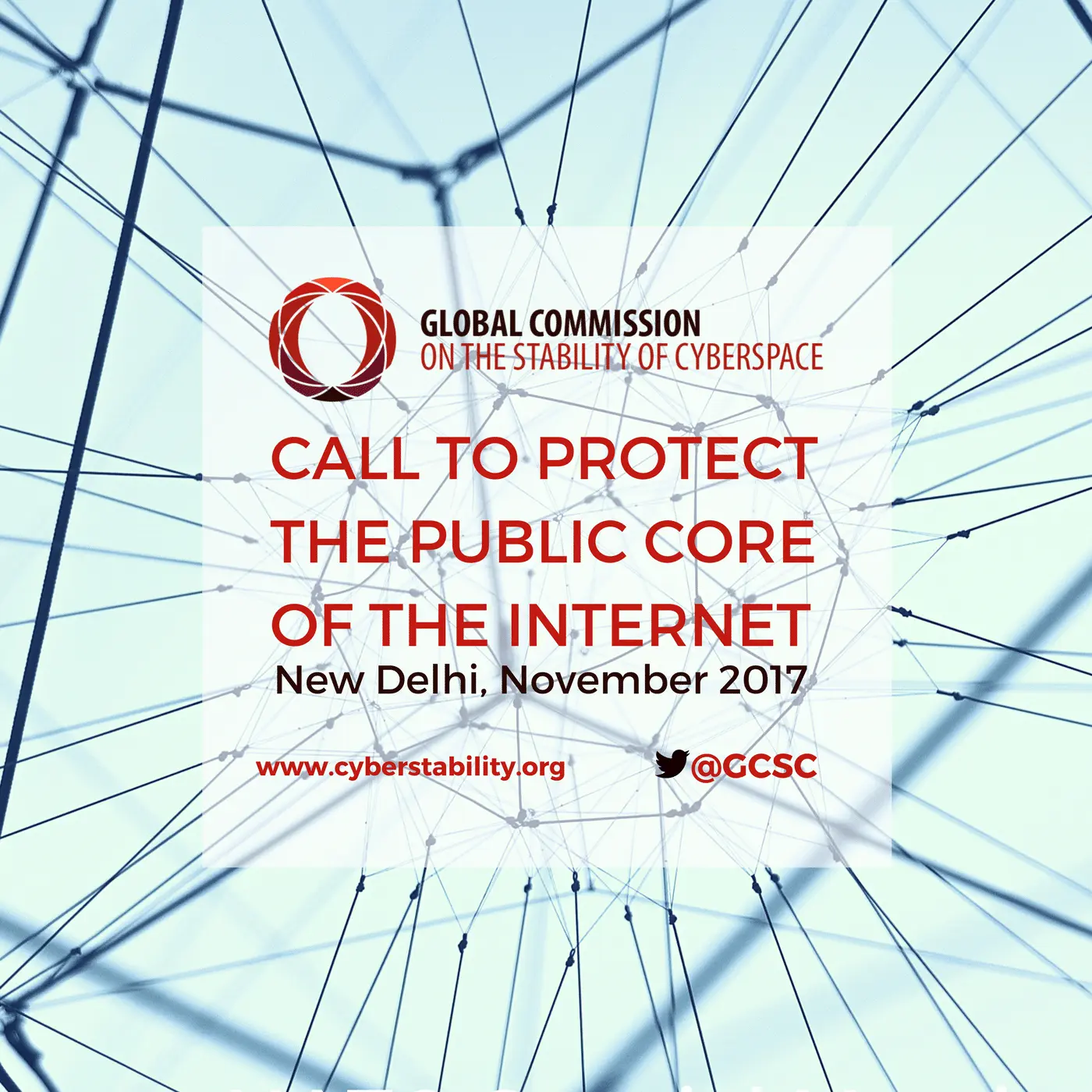Presented at the Paris Peace Forum, GCSC report features a cyberstability framework and recommendations at a critical juncture in the future of cyberspace
Paris, 12 November 2019 – The Global Commission on the Stability of Cyberspace (GCSC) issued today its final report Advancing Cyberstability, as part of a panel held at the 2019 Paris Peace Forum. Stef Blok, Minister of Foreign Affairs of the Netherlands, Jean-Yves Le Drian, Minister of Europe and Foreign Affairs of France, and David Koh, Chief Executive, Cyber Security Agency of Singapore, launched the report and placed the findings in the context of ongoing global efforts to enhance international security in cyberspace. Commission Co-Chairs, Michael Chertoff and Latha Reddy, along with former Chair Marina Kaljurand, presented recommendations and commented on the strategic approach and work of the GCSC.
For an overview, see the Fact Sheet. To download a copy of the report, visit Advancing Cyberstability.
This report represents the culmination of the Commission’s work over the last three years, offering a cyberstability framework, principles, norms of behavior, and recommendations for the international community and wider ecosystem.
“Earlier this year, 28 EU-member states backed a framework for sanctions targeting malicious cyber activities. Today, the GCSC consolidates a set of norms and principles for behavior of state and non-state actors. This is an important contribution to a digital space in which order and peace must prevail,” commented Stef Blok, Minister of Foreign Affairs of the Netherlands, a co-founder of the GCSC. “Since stability in cyberspace is directly linked with stability in the ‘real world,’ such a cyberstability framework is more crucial than ever. The next step in this multilateral process is to collect evidence and hold those who break the rules responsible. Together we must increase accountability and combine all pieces of the puzzle, between governments, tech and security firms, and civil society.”
The work of the Commission originated out of a desire to address rising social and political instability as a result of malicious actions in cyberspace. The situation has further deteriorated as evidenced by the rise in the number and sophistication of cyber attacks by state and non-state actors, which increasingly puts the considerable benefits of cyberspace at risk. In this increasingly volatile environment, there is an apparent lack of mutual understanding and awareness among communities working on issues related to international cybersecurity. With this report, the GCSC seeks to contribute to international efforts to address these challenges.
“Cyberstability and governance are inextricably and naturally linked,” added Michael Chertoff, GCSC Co-Chair. “As the digital age evolves so rapidly, governments and societies lack the desired level of exchange, let alone the decision-making processes needed to ensure the stability of cyberspace. The GCSC’s effort complements the work of other organizations, and will serve to influence how critical actors can engage with one another and collaborate towards a stable cyberspace.”
Emphasizing a concerted, multistakeholder approach, the framework reflects technological, product and operational measures, as well as a focus on behavioral change required among all stakeholders.
“The publication of this final report is not the end, but rather the beginning of a new profound effort toward implementing the suggested principles, norms, and recommendations,” stated Latha Reddy, GCSC Co-Chair. “The onus is on all stakeholders—governments, industry, civil society—to collaborate, adopt and implement accepted practices to help strengthen cyberstability. The stakes are higher than ever, which dictates a response in kind.”
Following the release, the GCSC members will continue to advocate and engage with their respective communities. Input and feedback from these groups were reflective of interactions with both state and non-state experts and will form the basis of advocating for the report going forward.
About the Commission
Launched at the 2017 Munich Security Conference, the mission of the Global Commission on the Stability of Cyberspace (GCSC) is to develop proposals for norms and policies to enhance international security and stability and guide responsible state and non-state behavior in cyberspace. The Commission helps to promote mutual awareness and understanding among the various cyberspace communities working on issues related to international cybersecurity.
The Global Commission on the Stability of Cyberspace was initiated by The Hague Centre for Strategic Studies (HCSS), which, together with the EastWest Institute constitute the GCSC Secretariat. In addition to the Commission body itself, the GCSC is supported by a number of partners, including the governments of the Netherlands, Singapore and France, as well as Microsoft, the Internet Society, Afilias, other sponsors and supporters, and a Research Advisory Group that connects the GCSC to the academic community.
For more information, please visit www.cyberstability.org or contact loukfaesen@hcss.nl







